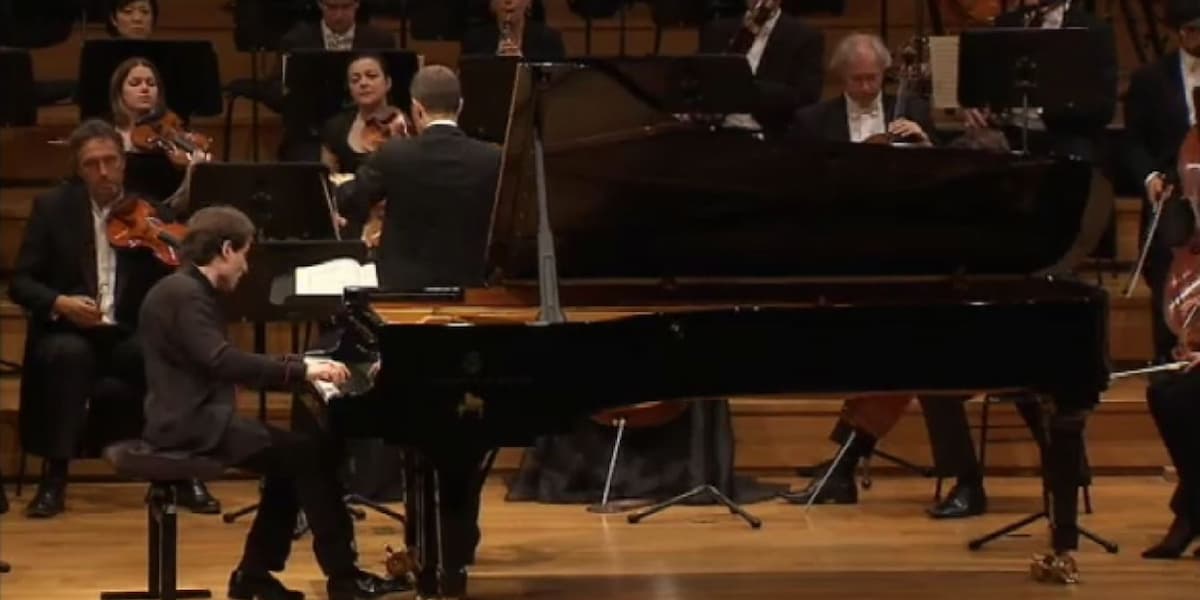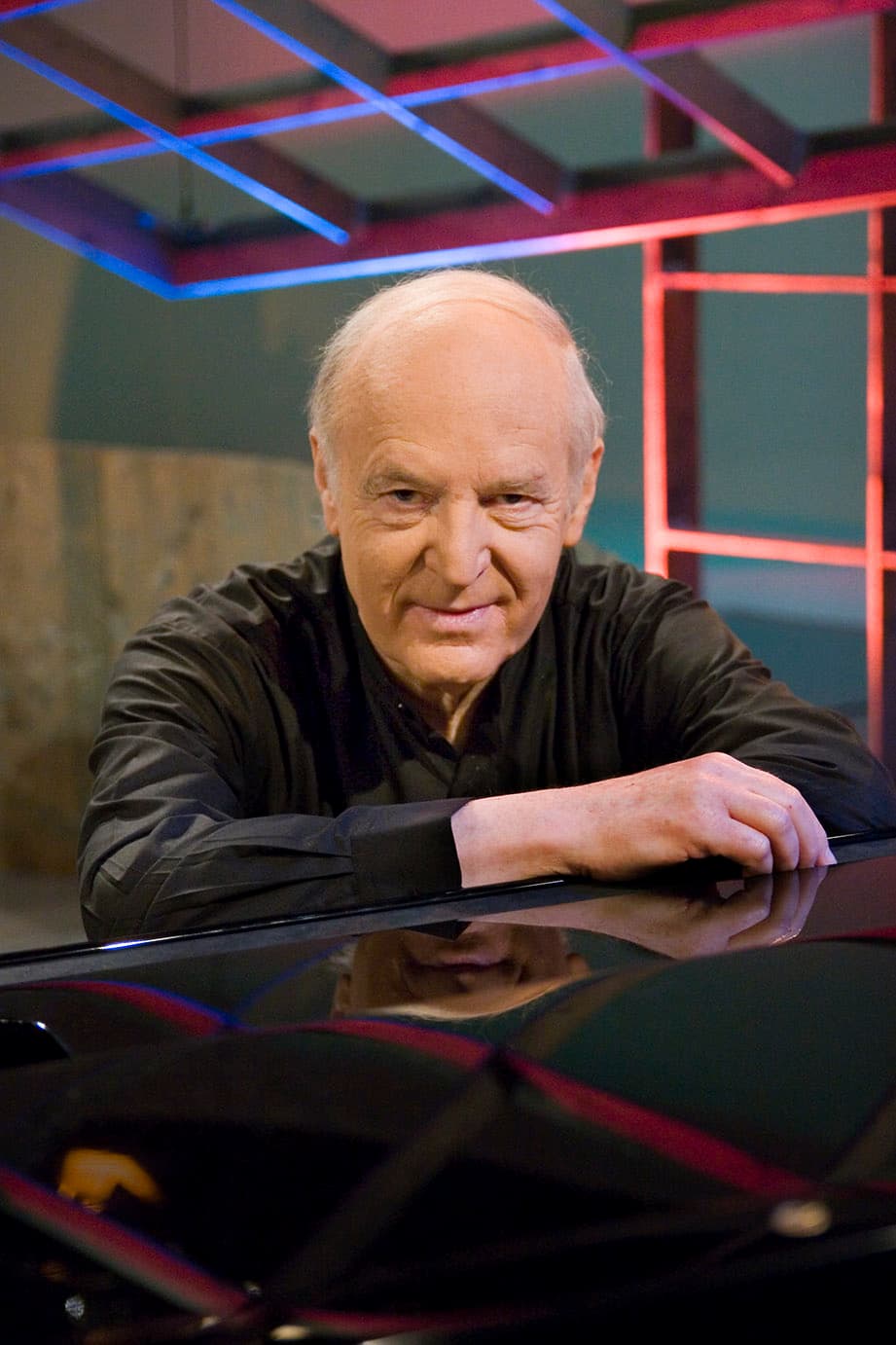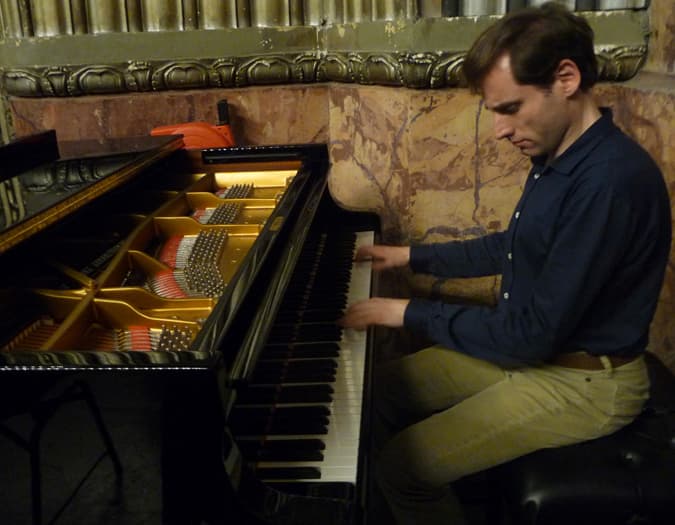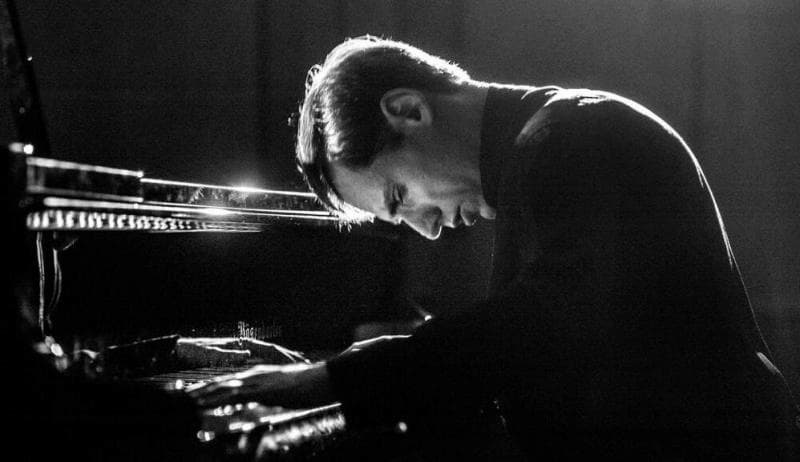In 2013, pianist Boris Giltburg won the First and the Audience Prize at the Queen Elisabeth Competition in Brussels. Lauded as a deeply sensitive, insightful, and compelling musician, it instantly propelled him to international recognition and fame. Revealing a huge spectrum of expressive nuances and technical skills, Giltburg is known for his impassioned, narrative-driven approach to performance, delivering a gripping interplay of spiritual calm and emphatic engagement.
Boris Giltburg Performs Rachmaninoff’s Concerto No. 3 in D minor, Op. 30
Childhood in Moscow

Boris Giltburg at the Queen Elisabeth Competition
Boris Giltburg was born in Moscow on 21 June 1984 into a long line of piano teachers going back to this great-grandmother. Obviously, there was always a piano at his home, and for young Boris “it seemed absolutely obvious that I should play.” Apparently his parents told him that he was watching a TV broadcast of Emil Gilels, and that he wanted to have a piano and chair like him. Boris also remembers that he “liked Yiddish songs when he was about three or four years old.”
His mother, however was hesitant, suggesting that they already had plenty of pianists in the family, and that her son might do something more practical. As he remembered in an interview, “So I, at 5 years of age, was denied something I really, really, really wanted to do, and I insisted, and I insisted until the point where she relented and started giving me lessons. And that’s how it all got started.”
Boris Giltburg Performs Brahms’ Intermezzo Op. 118 No. 2
Studying Under Arie Vardi

Arie Vardi
With the first piano lessons under his belt, the family moved to Tel Aviv and Boris became a student of Arie Vardi. Vardi began his artistic career at the age of fifteen and won a number of competitions before taking up appointments at the Hochschule für Musik in Hanover and at the Buchmann-Mehta School of Music, Tel Aviv University. For Giltburg, “Vardi was my one big teacher, the one teacher of my life.”
According to Giltburg, “Vardi taught me almost everything I know today. In terms of the approach to the musical text, of seeing the notes, the score, from style to musical text to phrasing, to almost everything in musical interpretation, I’ve learned from him.” Giltburg’s apprenticeship with Vardi lasted for almost 15 years, and he was one of roughly 40 Vardi students to have won first prizes at international competitions.
Franz Liszt: Verdi – Rigoletto: Paraphrase de concert, S434/R267 (Boris Giltburg, piano)
Influences and Career Options

Boris Giltburg in 2019
Giltburg’s musical path was greatly influenced from early on by some of the biggest names in the world of pianism. He counts, first and foremost, Artur Rubinstein, Richter, Gilels, and Sokolov as his greatest inspirations. But in general, the biggest influence in his life was “classical music in its entirety. I learn and experience a lot by listening to the huge amount of works that exist in musical literature, especially when discovering for myself a composer whose works I didn’t know so well before.”
Giltburg always had multiple talents and interests, including a real love for languages. As he explained, “I would have liked to be a linguist as I enormously enjoy studying languages and learning the relations between them.” On a more practical side, Giltburg considers computers as his secondary hobby. In fact, as he explained, “If not for music, I would like to be a computer programmer as it is a far more practical choice.”
Robert Schumann: Davidsbündlertänze, Op. 6 (Boris Giltburg, piano)
Crisis in Classical Music

Boris Giltburg at Wigmore Hall
According to Giltburg, there is no crisis whatsoever in terms of musical performance. However, the sheer amount of wonderful performers is not “balanced by talented young composers, as I feel that there are currently no composers of the magnitude like Britten, Shostakovich… But I hope it is just a temporary break in the streak of musical geniuses we were lucky to have in the last centuries and not at all a permanent thing.”
In his performances and lectures, Giltburg has become an outspoken advocate for classical music. “People have preconceptions about classical music; they think it is boring, elitist or inaccessible. I can only agree about it being inaccessible; with some music you need guidance in order to understand what is going on.” His interests in computing also serve an educational purpose as Giltburg maintains a web log for non-musicians, “trying to give inside information about what we hear when we listen to classical music.”
For more of the best in classical music, sign up for our E-Newsletter
